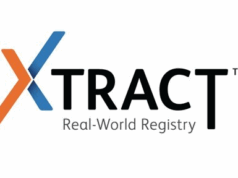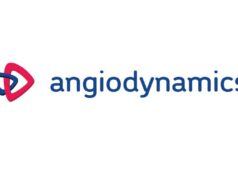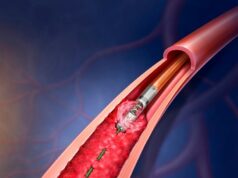 Further reports on the use of atherectomy in the USA this week appeared in ProPublica. The nonprofit investigative news outlet shared three articles in its latest round of investigations looking into Medicare claims data.
Further reports on the use of atherectomy in the USA this week appeared in ProPublica. The nonprofit investigative news outlet shared three articles in its latest round of investigations looking into Medicare claims data.
The articles, led by a story entitled, ‘Thousands of patients may be undergoing vascular procedures too soon or unnecessarily,’ were published yesterday. The main article was accompanied by a profile of Caitlin Hicks, an associate professor of surgery at Johns Hopkins University School of Medicine (Baltimore, USA), who has been a prolific researcher in the area of overutilisation of certain vascular procedures.
The main article reports on a new analysis of Medicare claims by ProPublica and CareSet, a health analytics group. The investigation found that atherectomies “were performed on about 30,000 patients who had questionable need for them”.
The article proceeds to share a list of physicians who, for various reasons, stood out during the research. Some attracted attention “because of the money they made” from performing atherectomies. The article names one doctor, for example, who it states received US$45 million from Medicare over five years for performing thousands of atherectomies. Others caught the researchers’ eyes “because a large proportion of their patients who underwent atherectomies had just claudication, raising questions about the necessity of the procedures”.
Hicks is quoted in the article as saying, “It’s concerning that we may be doing unnecessary procedures and spending unnecessary healthcare dollars”.
Marty Makary, a surgeon and researcher at Johns Hopkins and leader of the Global Appropriateness Measures organisation, also comments in the article. “The moral dilemma that the medical community is now facing is that we can see practice patterns in big data that are inappropriate. Do we have a duty to act? I think we do,” he is quoted as saying.
The article states that ProPublica used the work of Hicks, Makary and their colleagues as a “springboard” for their analysis, with the aim of answering three “basic” questions: “Which doctors are making the most money off of a single procedure? Who are they treating? And what is happening to their patients?”
The authors found that about 200 doctors are responsible for a majority of atherectomies conducted across the country, and states that “this small cadre of mostly vascular surgeons, interventional radiologists and cardiologists had earned nearly US$1.5 billion, conducting almost 200,000 procedures”.
A second article digs deeper into the research, looking at how ProPublica and CareSet investigated the overuse of vascular procedures.
The profile of Hicks highlights how she and her team faced hostility in response to their work on the topic, including from the podium at scientific meetings. The title of the article states that Hicks—who “warned of unnecessary, risky vascular procedures”—was labelled a ‘Nazi’ and accused of ‘fratricide’ for doing so.
Society for Vascular Surgery responds
The Society for Vascular Surgery (SVS) has issued a statement addressing these latest reports published by ProPublica.
The SVS informed members that it was aware of the latest ProPublica coverage and remains concerned that such articles, “while addressing an important issue of potential overutilisation and statistical outliers, can also stoke unnecessary fear in the patient population and may contribute to a well-documented under-diagnosis issue, fostering downstream negative outcomes which can be prevented with earlier diagnosis and treatment.”
The statement continued, “It is important to note that in this series of articles the overwhelming majority of providers consistently seem to be practising in accordance with vascular care guidelines, and this deserves acknowledgement.”
The Society pointed to previous “strong” positions it has taken regarding quality standards in the provision of vascular care. The SVS statement stressed that it would continue to advocate “that all providers of vascular care should practise in accordance with quality care and patient safety guidelines, enrol in a registry that meets or exceeds the standards of the VQI [Vascular Quality Initiative], and engage in quality improvement initiative.”
The SVS leadership will continue to review the articles, the statement added, with a more in-depth response to be released in the coming days. The Society also plans to work closely with societies in the interventional cardiology and interventional radiology worlds—the Society for Interventional Radiology (SIR) and the Society for Cardiovascular Angiography & Interventions (SCAI)—on a joint response.













